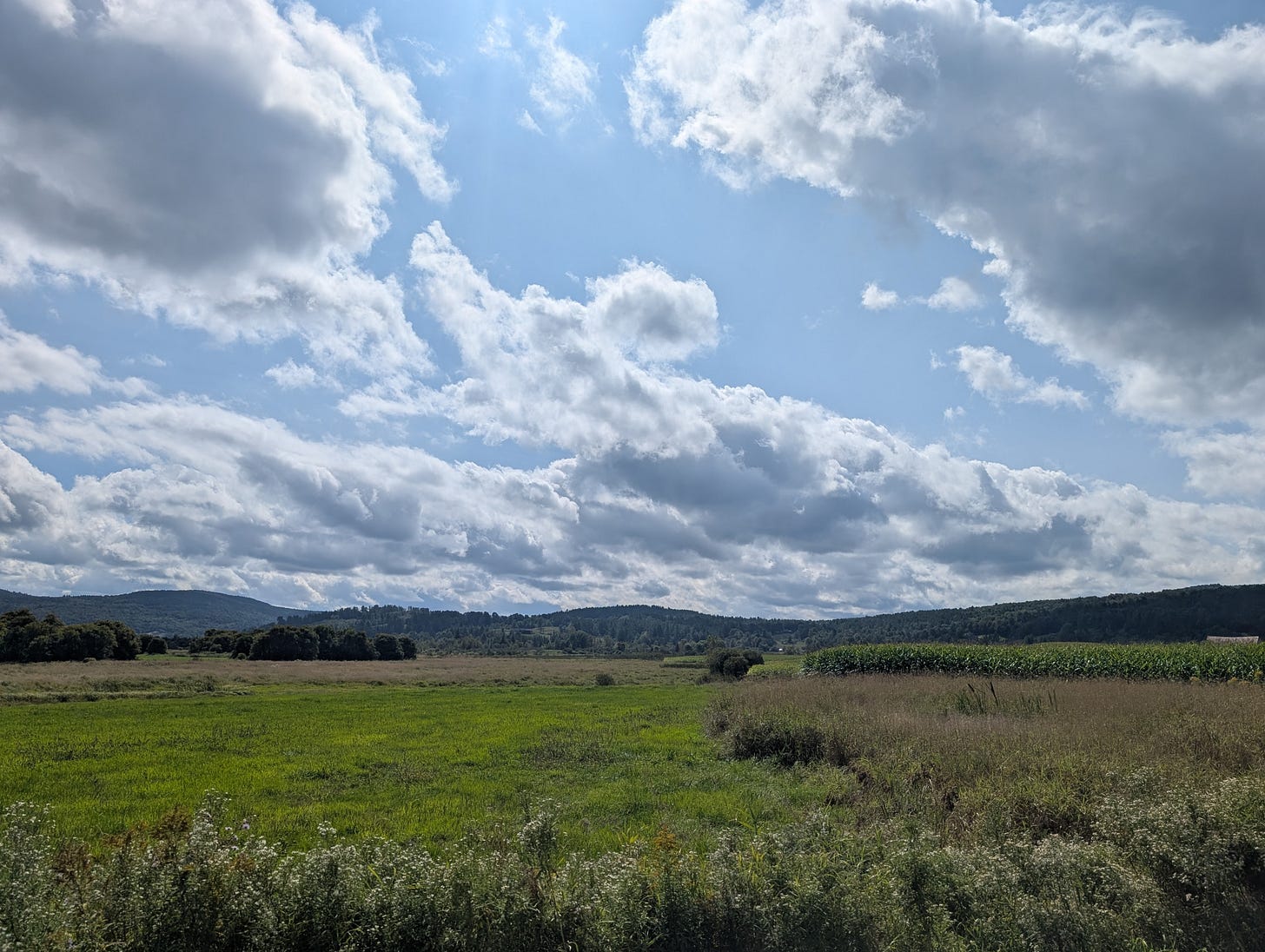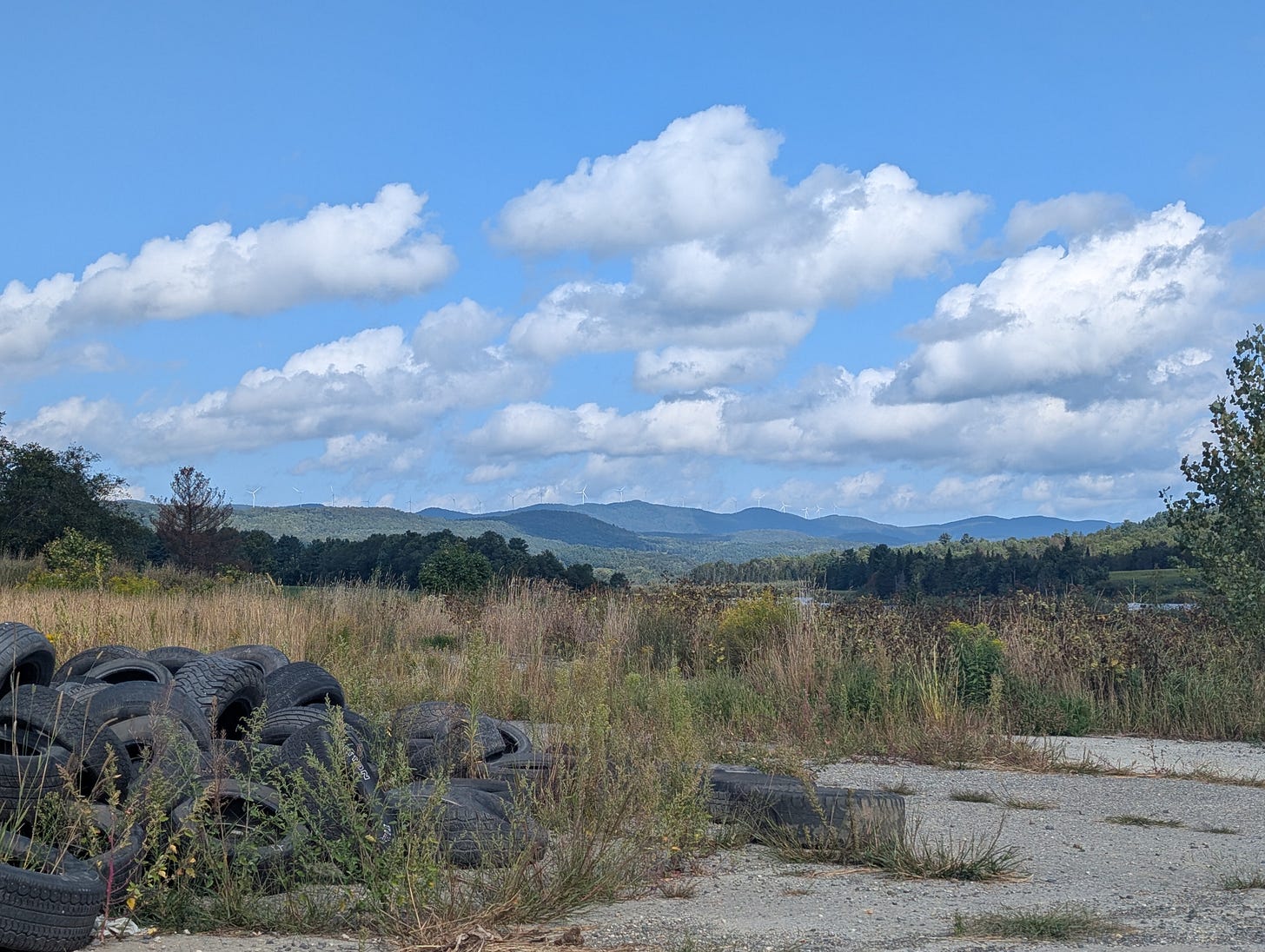The Yeast of Philemon
Freedom begets freedom
Paul, a prisoner of Christ Jesus, and Timothy our brother,
To our beloved coworker Philemon, to our sister Apphia, to our fellow soldier Archippus, and to the church in your house:
Grace to you and peace from God our Father and the Lord Jesus Christ.
I thank my God always when I mention you in my prayers, because I hear of your love for all the saints and your faith toward the Lord Jesus. I pray that the partnership of your faith may become effective as you comprehend all the good that we share in Christ. I have indeed received much joy and encouragement from your love, because the hearts of the saints have been refreshed through you, my brother.
For this reason, though I am more than bold enough in Christ to command you to do the right thing, yet I would rather appeal to you on the basis of love—and I, Paul, do this as an old man and now also as a prisoner of Christ Jesus. I am appealing to you for my child, Onesimus, whose father I have become during my imprisonment. Formerly he was useless to you, but now he is indeed useful to you and to me. I am sending him, that is, my own heart, back to you. I wanted to keep him with me so that he might minister to me in your place during my imprisonment for the gospel, but I preferred to do nothing without your consent in order that your good deed might be voluntary and not something forced. Perhaps this is the reason he was separated from you for a while, so that you might have him back for the long term, no longer as a slave but more than a slave, a beloved brother—especially to me but how much more to you, both in the flesh and in the Lord.
So if you consider me your partner, welcome him as you would welcome me. If he has wronged you in any way or owes you anything, charge that to me. I, Paul, am writing this with my own hand: I will repay it. I say nothing about your owing me even your own self. Yes, brother, let me have this benefit from you in the Lord! Refresh my heart in Christ. Confident of your obedience, I am writing to you, knowing that you will do even more than I ask.
One thing more: prepare a guest room for me, for I am hoping through your prayers to be restored to you.
Epaphras, my fellow prisoner in Christ Jesus, sends greetings to you, and so do Mark, Aristarchus, Demas, and Luke, my coworkers.
The grace of the Lord Jesus Christ be with your spirit.
Philemon 1-25
This is one of those weeks where it’s really hard for this preacher to pick between lectionary readings, all beautiful and all challenging. I would love to talk about Psalm 1, placed where it is for a reason. Like the first proverb in the Book of Proverbs, “The fear of the Lord is the beginning of wisdom,” Psalm 1 opens:
Happy are those who do not follow the advice of the wicked and take the path that sinners tread, but their delight is in the law of the Lord and on his law they meditate day and night. They are like trees planted by streams of water, yielding fruit in their season. (Ps 1:1-3)
I want to get into that, or our Deuteronomy 30:15-20 reading that supports us, telling us that the law of God is not for later, but for our flourishing here and now; following God is choosing life, choosing freedom. Of course I want to talk about that. And of course I want to unpack the important but difficult teachings of Jesus about giving up possessions, hating father and mother, and carrying our cross (Luke 14:25-33). How can I not talk about that?
And yet I must talk about Philemon.
If we follow the lectionary, we only get to talk about him every three years. How can you not talk about the above words of Paul, who is bound in prison yet free in Christ? Or Onesimus, the runaway slave, set free in Christ through Paul, yet still in bondage? How can we not talk about Philemon, the slaveowner, who has also been set free in Christ through Paul but is also in bondage by virtue of holding others in bondage?
Philemon is one of my favorite letters in the New Testament, and not just because it’s short; not only can you read it in one setting, you almost have to. The letter is as much a mystery as it is a teacher. It’s as much Paul telling us about Christian love, as he does in his other letters, as it is him showing it without needing to fully tell. It’s woefully imperfect in showing Paul’s incomplete morality, not fully calling for or commanding slave abolition as he never would do, and yet it is a nod and a nudge and pointing us somewhere beyond the world it’s from, pointing to something more complete and whole than the slavery that bound Onesimus, Philemon, and everyone in the brutal Roman society, just as slavery’s inhumanity bound humanity for thousands of years, just as all our other forms of slaveries by other names bind us here and now.
In these words to Philemon, if we cannot help but notice that Paul is not as courageous as our hindsight’s standard, we might also wonder where we are not as courageous, moral cowards in facing the tyrannies, oppressions, and exploitive social relations that bind us all, particularly those which we profit from, even here in our pastoral, tranquil, beautiful Vermont.
There was beauty back then in ancient Rome, too. Like Vermont, you could travel down the highway without seeing billboards, the land undeveloped without the need for zoning laws. It was no doubt beautiful country that Onesimus was running through after he escaped the city of Collosae, where he and Philemon lived, where Onesimus had done something to “wrong” Philemon (which whatever it was, seems to pale in comparison to Philemon’s, you know, slavery).
Running into Paul and the Christians in Ephesus, Onesimus hears more about this Jesus of Nazareth character through the community of people who love him and have something unusual about them. Of course, Onesimus would have known his owner Philemon to be a Christian, and we don’t know enough of the backstory to know whether Philemon was on the kinder side of slaveowner or the more brutal side, or how much it matters. We don’t know if Philemon had tried to teach Onesimus about Jesus. We don’t know how exactly Onesimus found Paul, likely through other Ephesian Christians. But perhaps in his newfound taste of freedom, Onesimus felt drawn to a freedom he sensed in them, perhaps spiritually freer than anyone he had ever met. And he knew that this strange man named Paul wanted his former owner to treat him no longer as a slave, but a brother.
Of course, Paul was not fully free either, nor were those Christians. I don’t just mean in his literal imprisonment, but in his half-blind vision; we don’t have any record of any human anywhere writing against slavery until hundreds of years later with St. Gregory of Nyssa, who said, “If God does not enslave those he made free, who is he that sets his own power above God's?”1 We sometimes try to make Roman slavery sound less brutal than it was to assuage our comfort with parts of Scripture, but it really was a system that enabled such brutality that I can’t pretend to know why Scripture was not clearer. But we do still catch a glimpse into the heart and soul of Paul, driven by God who wants people to be free on God’s terms, even if they can’t be on human terms.
As Jesus would tell his disciples, “The kingdom of heaven is like yeast that a woman took and mixed into about sixty pounds of flour until it worked all through the dough.” And this letter to Philemon is a perfect dash of the heavenly yeast of Christ into the world. While it didn’t change the systems they were in immediately, it represented a liberatory ethic that slowly but surely worked its way through humanity like dough. Centuries later, Philemon was one of the many examples that black Christians could point to in helping other Christians see what freedom in Christ not only looked like, but required of all of us.
Unfortunately, we don’t have time to do a breakdown of every bit of rhetoric and gesture of love that Paul does. But I love that we probably only have this letter because it made such an impression on Philemon. If Philemon was not moved by this letter, and instead felt insulted, I have to imagine that we would probably not have these words. Instead, I can imagine that it would be like many of Paul’s other short letters that got thrown in the fire to heat the community stew.
We don’t know what happened after this letter. But I want to believe Philemon was transformed, and that he did treat Onesimus, the slave who ran away, as a prodigal brother. I want to believe he kept these words as a badge of honor for all their freedom, words that give us hope that love-imbued communication actually can make a difference, that we don't have to resort to the means of our current political climate because the way of Jesus, the only fully and truly liberated Holy Spirit, is always working for our liberation. Not only for Onesimus, the slave, but working for liberation for Philemon, the slave owner.
Christ came to set us all free. When we put our faith in him and seek to follow his often-difficult ways, we say “yes” to his invitation of freedom. But as we talked about last week, this isn’t just about us and our internal life, because nothing in Christianity is. To fully participate in Christ’s freedom, we are not only to look to be liberated from what binds us personally. In order to be liberated from what binds us, we must be liberated from how we bind others. This is the subtext of what Paul was telling Philemon: we experience the fullness of our freedom in Christ when we become agents of His freedom for others. And just as the cost of Christ setting us free was carrying his cross, sometimes the cost of setting our neighbor free is carrying ours. We don’t do that in a life lived for ourselves. But we can with the freedom that Christ bought us with his blood.
This regifted freedom comes in many forms. It can be through financial giving to those in financial servitude. It can be through education, as Presbyterians have always known that freedom comes through knowledge when we are enslaved to ignorance. It can be through the gift of time that frees someone’s ability to take care of other needs, like offering childcare. It might be addiction treatment, and in a world full of addictions often fueled by our societal addiction to money, that means setting everyone free from exploitative practices; if a company is to be a truly “free enterprise,” it must not profit in ways that enslave others..
And sometimes—as is core to this letter to Philemon—it means through forgiveness. Forgiveness, one of the easiest words for us when we need it and one of the hardest words when we need to give it, and seemingly impossible when someone doesn’t seem to think they need it. The most common Biblical word for forgiveness is aphesis, and it can mean letting go, remission, deliverance, and liberty. It must always be balanced with justice that preserves the liberty of others, and in our fallen world, it is never as complete as we’d like. But forgiveness is freedom: freedom for the forgiven, and freedom for the forgiver. Reconciliation and freedom go hand in hand.
And this is the good news: no matter how imperfect our freedom is, no matter how much our fallen world will continue to exploit each other, no matter how much we can’t even see the ways we exploit and profit off exploitation, and no matter how much we can’t see the chains that we ourselves are bound in, we have the pioneer and perfector of our freedom in Jesus Christ. His method of liberation was ultimate reconciliation.
Christ reconciled the great evils of humanity, which Scripture tells us are not only inflicted on each other, but are evils we inflict on God himself. Christ rectified this through an act of giving and forgiving love. He reconciled our own estrangement from life so that we might be free from every power and principality that twists good and delights in evi. He reconciled the gulf between life and death itself, and now it is just a matter of us taking the opportunity, like Philemon, to say “yes” to more freedom through His reconciliation than we did yesterday.
And so we do listen to what Psalm 1 and Deuteronomy 30 tell us, that to really “choose life” is walking in God’s ways, or when Jesus says we cannot really be a free disciple of Christ if we are still enslaved to our mother and father (sorry, I couldn’t help but bring those Scriptures in some way). If we are not ready to give up everything in order to follow Jesus, we are not really as free in Christ as we can be, for freedom is the foundation of discipleship.2
Like Philemon, we can trust that to fully enjoy Christ’s liberation, we must help others be liberated in some way—again, whether through money, or knowledge, or time, or from the simple bondage of our judgment. For Christ first set you free. Take that yeast and let it work in you. Don’t put yourself or someone else back in chains, even if it means picking up your cross. For Jesus first picked up the cross and chains that humanity was carrying, that we might be fully free to love one another in the way that God first so loved us.
Digging around, it seems that while Aristotle mentions the existence of people who personally opposed slavery philosophically, we don’t have writings from them, and Aristotle cites them in order to argue against their views.
Luke 14:25-33






